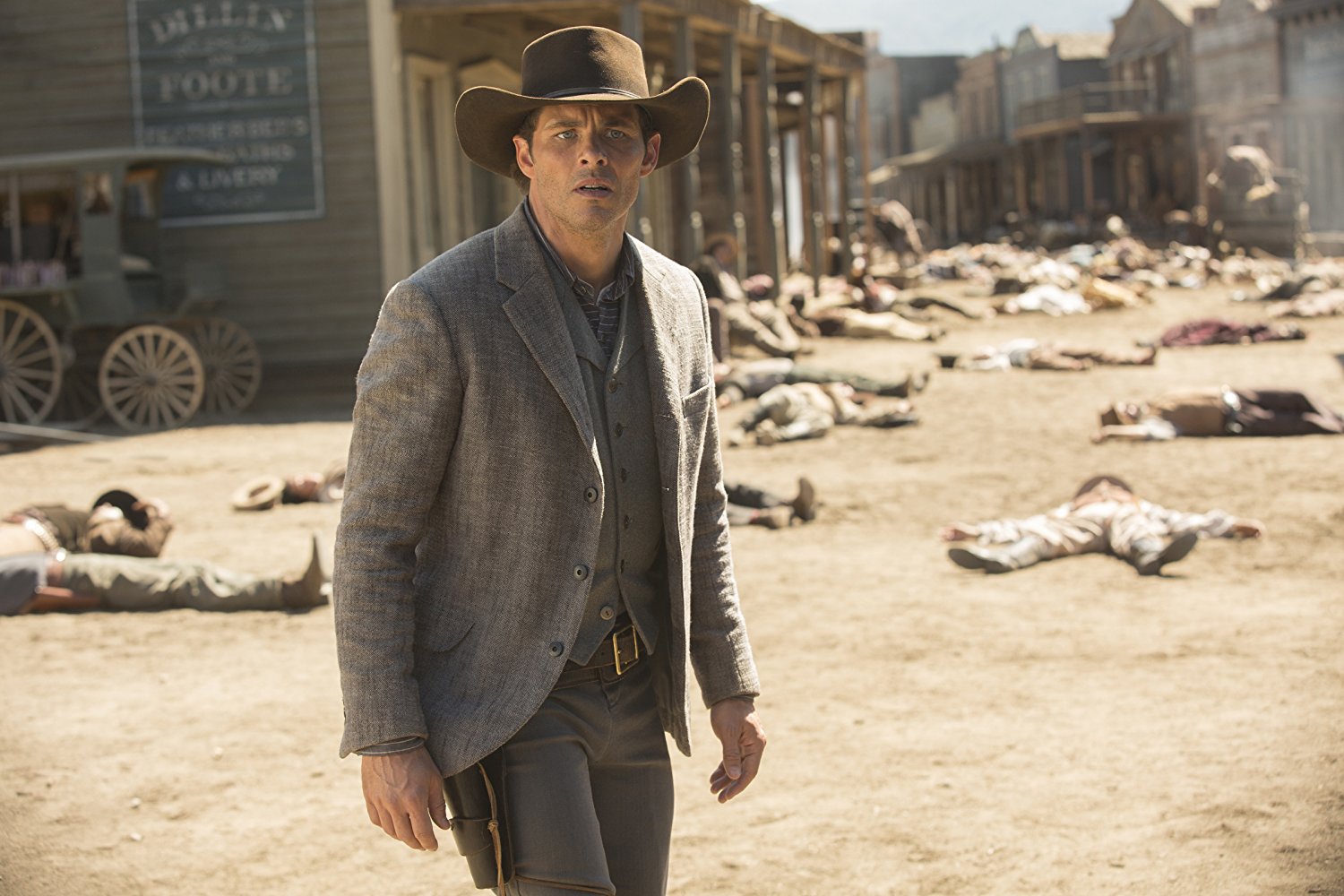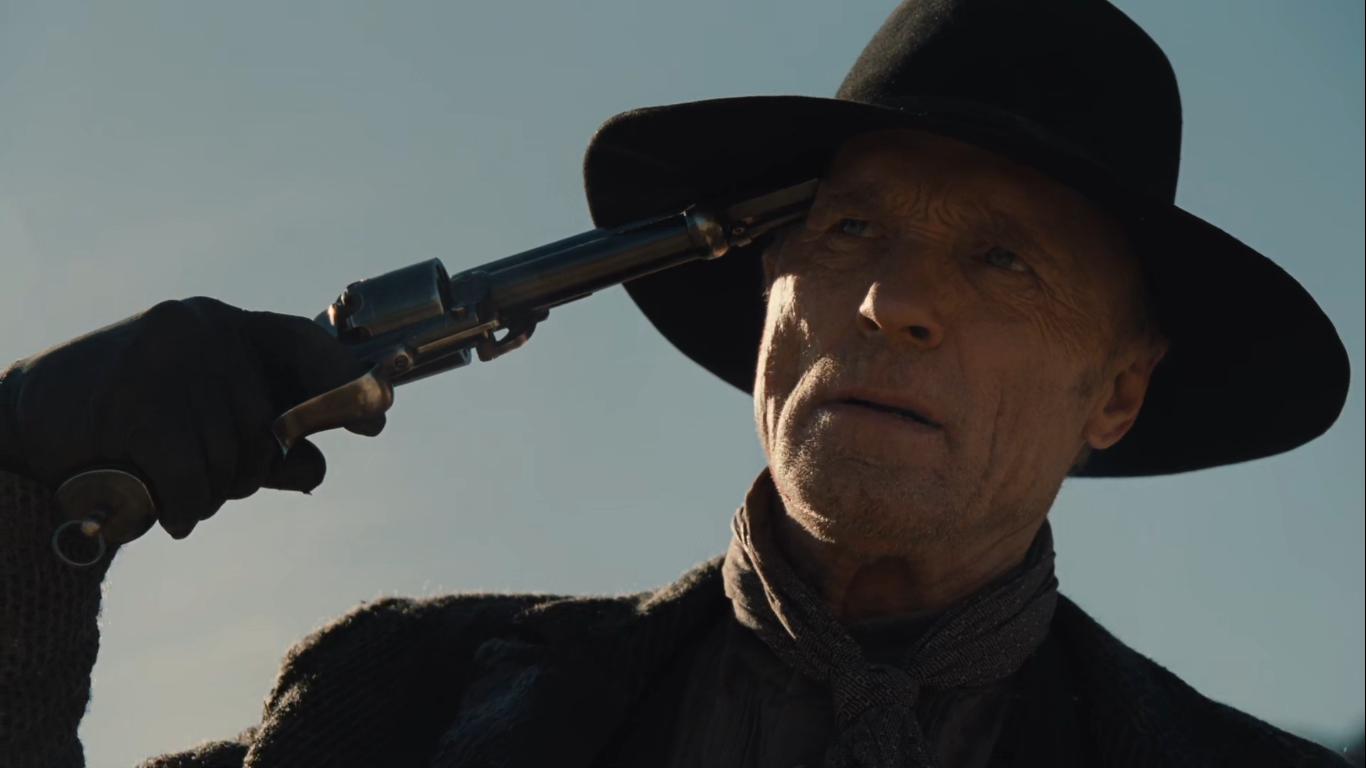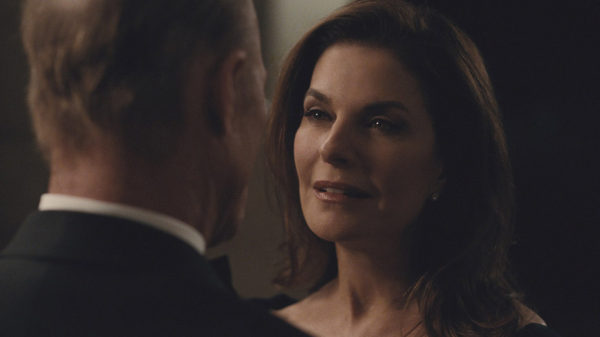*Spoilers for Westworld season 2 episode 9*
Westworld is getting ready to wrap up its wonky, but fascinating, second season, and the penultimate episode – Vanishing Point – brought up some interesting questions in regards to the show’s attitudes towards philosophy and suicide’s place within it.
The issue of choice is at the centre of a lot of philosophical ideas about the human condition, and it is choice that also appears to have become Westworld‘s main concern as it moves forward. We may think that the hosts’ growing consciousness also constitutes the agency to choose their own paths, but season two of the show has intentionally muddied the waters on that.
Maeve was programmed to rise up and exit the park – not her choice, but Ford’s – but she instead got off the train and went in search of her daughter. Ford notes this in the penultimate episode, and Maeve is a supremely interesting character to follow when searching for what Westworld is trying to do this year.
Dolores, on the other hand, seems to be self-actualised but shows little sign of a larger goal other than destruction and revenge. We’ll have to wait until next week’s episode to truly discover whether this lack of clarity around Dolores is baked into the season on purpose, or is simply an badly executed character arc.
But mostly I want to talk about suicide in this episode, and the three distinct ways that characters choose to, or not to, take their own lives out of the grand equation.

Both Juliet and Teddy were gaslit by those they loved, and both were awakened during the episode whether in flashback or present(ish) day. Juliet discovered the actions of her husband in the park via a disc drive, and Teddy became conscious after Dolores’ personality tinkering a few weeks ago. They’re horrified by what they find and, although the ends are the same, the way they get there is quite different.
Both believe they are culpable in their partner’s horrific deeds and, while Juliet can be understood to act out of despair, Teddy instead uses his death as a way to potentially stop Dolores – or at least slow her down. Teddy knows that, even in his awakened state, he will stand by Dolores and assist her in her mission. He cannot allow that to happen, and so he leaves her to continue alone.
Juliet was so traumatised by her lack of agency that she took her own life, but Teddy decided in the last moment to use his power to choose for the greater good.
Now, if you’ll let me get existential for one moment, absurdist Albert Camus writes in The Myth of Sisyphus that “there is only one really serious philosophical problem, and that is suicide.” We know that Westworld wants us to think about these bigger ideas, so I believe that these different perspectives on taking one’s own life are an attempt to say something outside of what it means for William and Dolores’ arcs.
Absurdism is based on the idea that there is no intrinsic meaning to life, and thus the human drive to find purpose is that meaning in and of itself. We are all Sisyphus rolling the rock up the hill again and again, the hope of getting to the top enough to sustain us. Religion is one way humans get around this, believing in something they can’t prove in order to make the grind of daily life worth it.
The hosts of Westworld have been searching for meaning all season, whether that’s Maeve’s belief in her daughter despite knowing their relationship is ‘code’, or Ghost Nation’s mission to escape their world and find another – creating a religion out of the park’s goings on in the process. They press on despite the world telling them they’ll never win, or the lack of understanding of what’s at the top of that hill in the first place.
As said above, Dolores is a problem in that area in that we’re not entirely clear what she wants from the Valley Beyond, but almost all of the other ‘woke’ hosts are searching for their narrative.

Now, the third suicide in this episode is William’s, though he doesn’t follow through with it. After killing his own daughter believing she is a host, he takes a gun to his head but, instead of pulling the trigger, we leave him in the episode checking if he, himself, is just another of Ford’s AIs.
It’s been a series-long fan theory that William is a host, but I think it’s far more likely that this is just another symptom of William’s lost grip on reality. It comes back to agency and the ability to choose our own path – he would rather believe that he’s been programmed to do these terrible things than to think he could do them of his own accord. He’s refusing to acknowledge is choices.
Suicide is a tricky thing to get right on television, but Westworld has posed some thoughtful questions with Vanishing Point and tied them into the season’s larger themes. If it is the search for meaning that makes us human, then maybe the hosts have already won.

